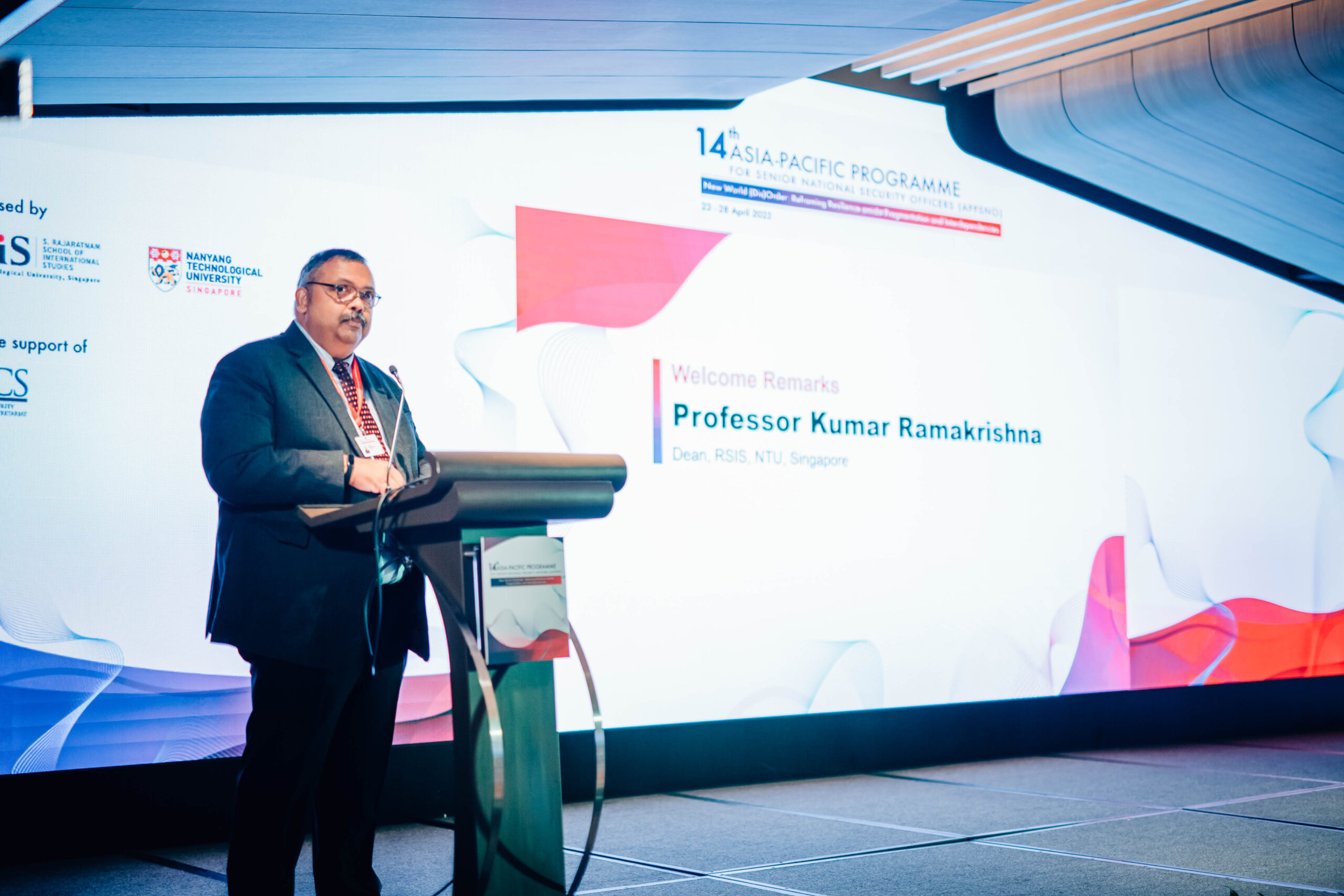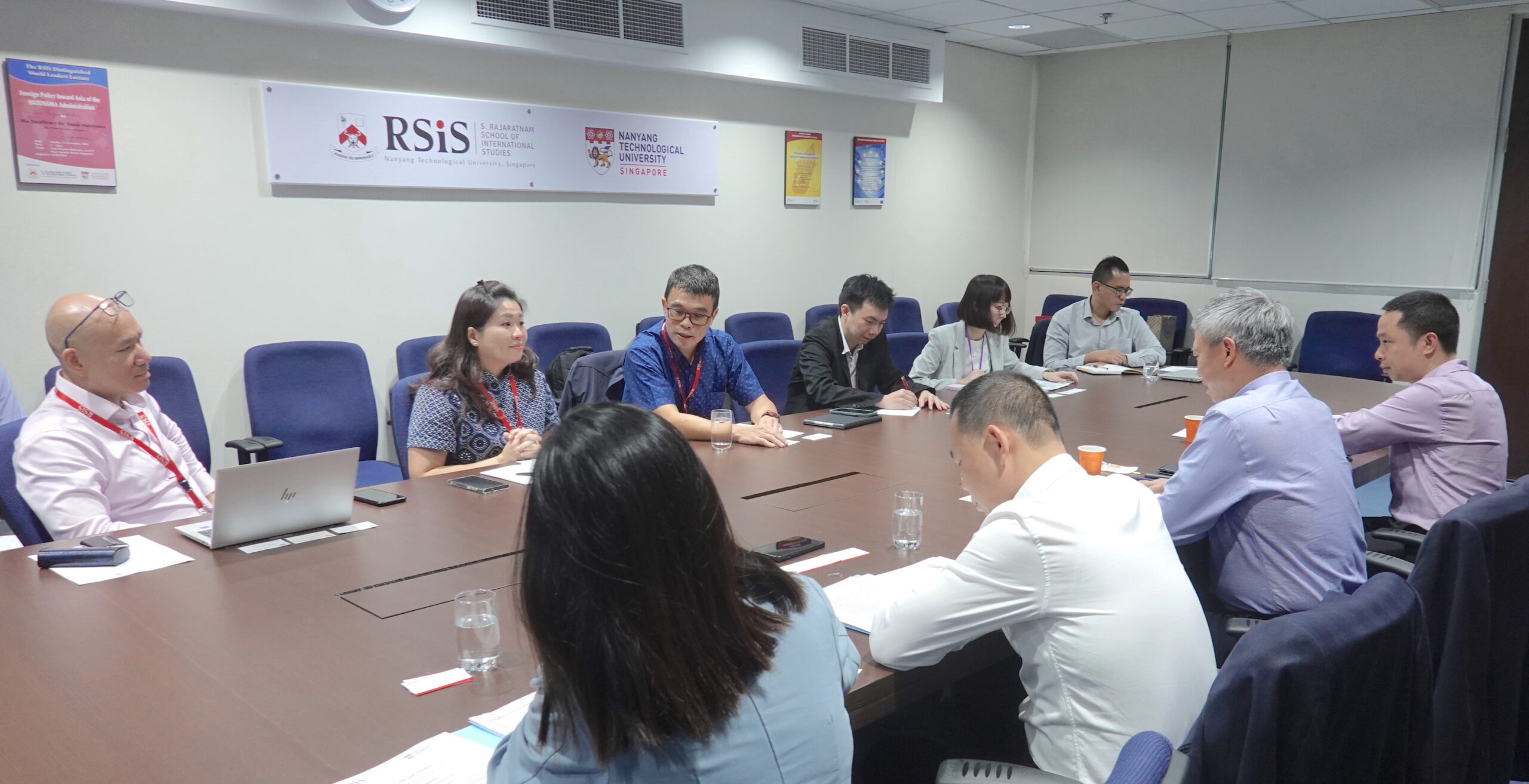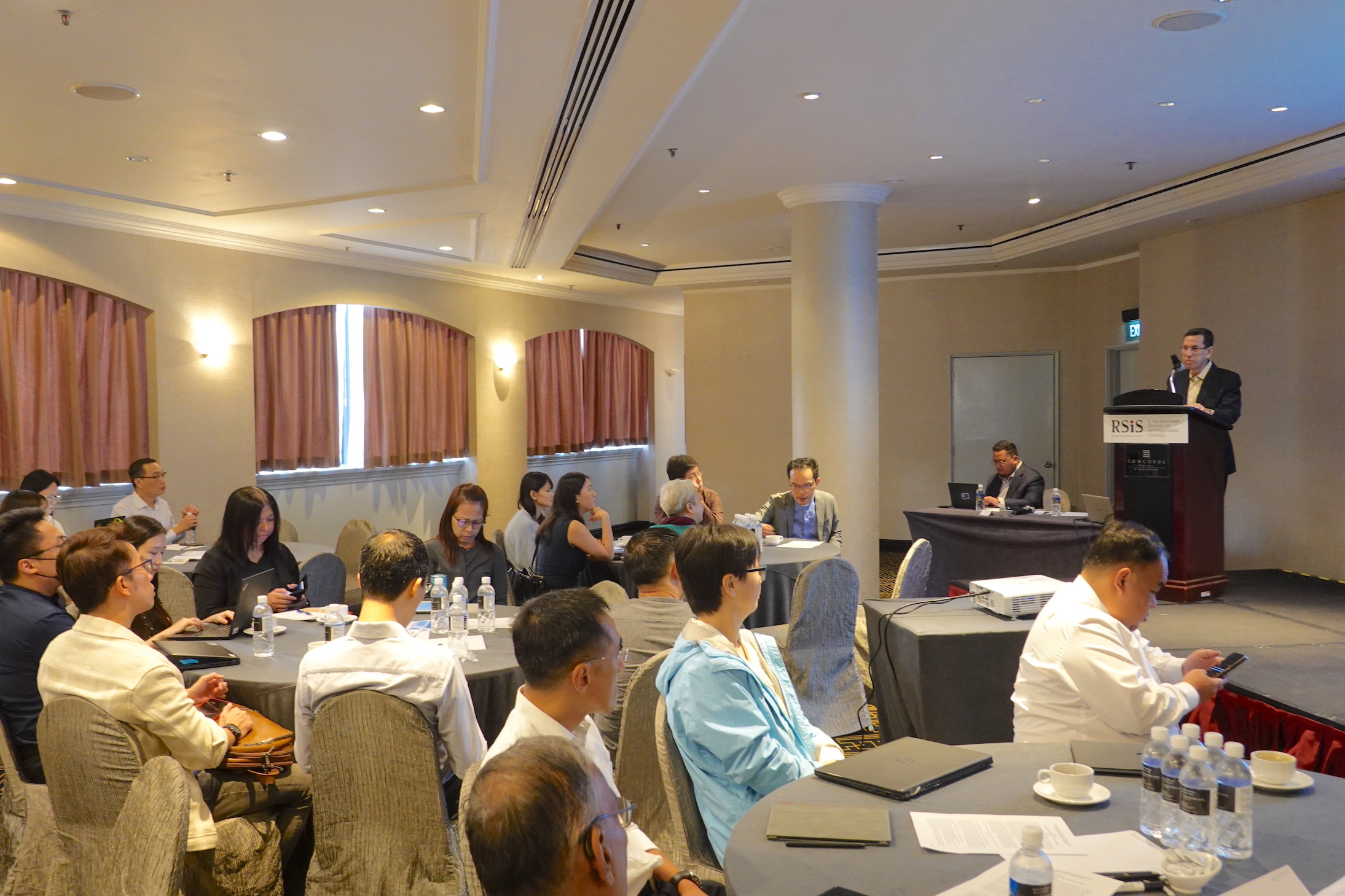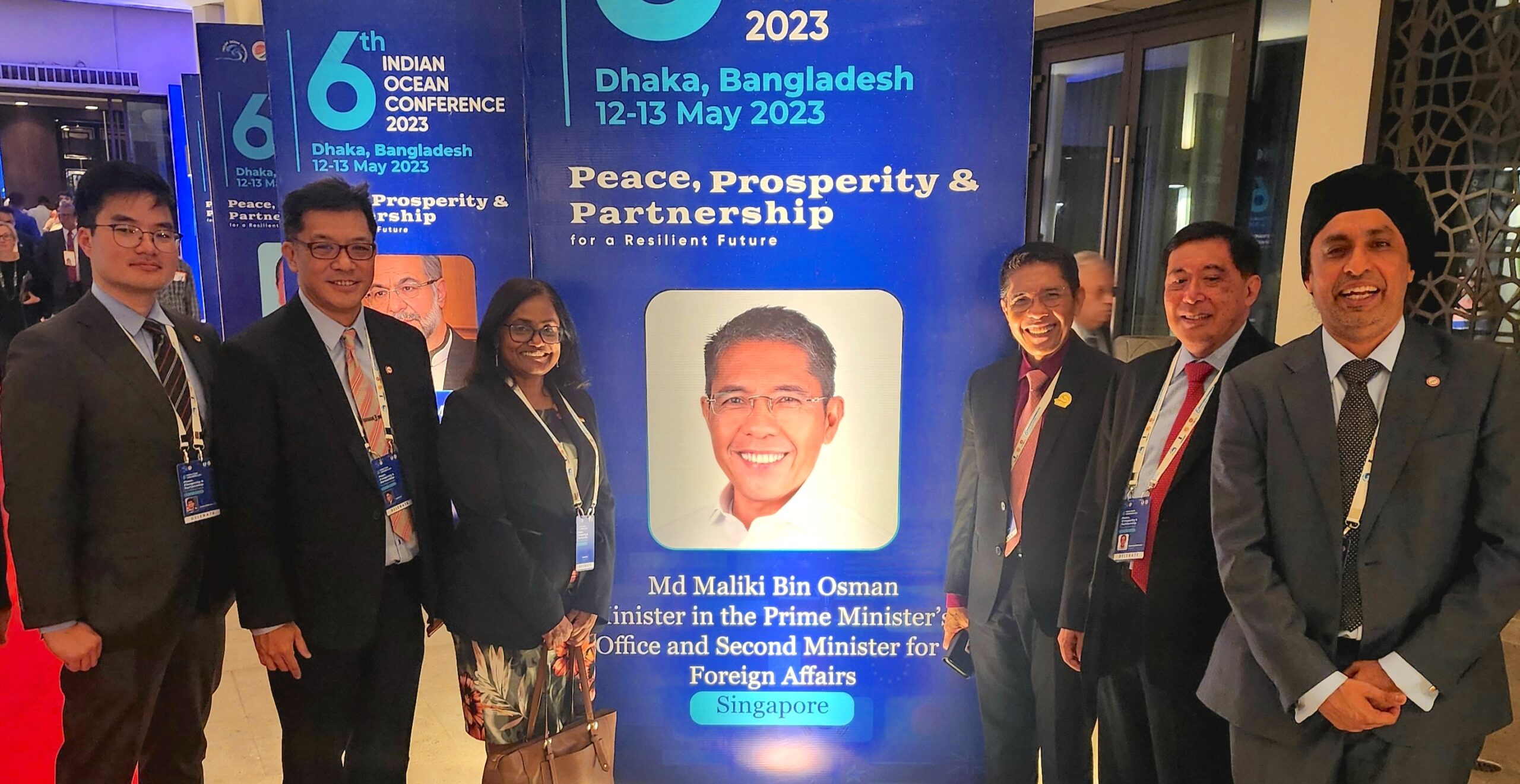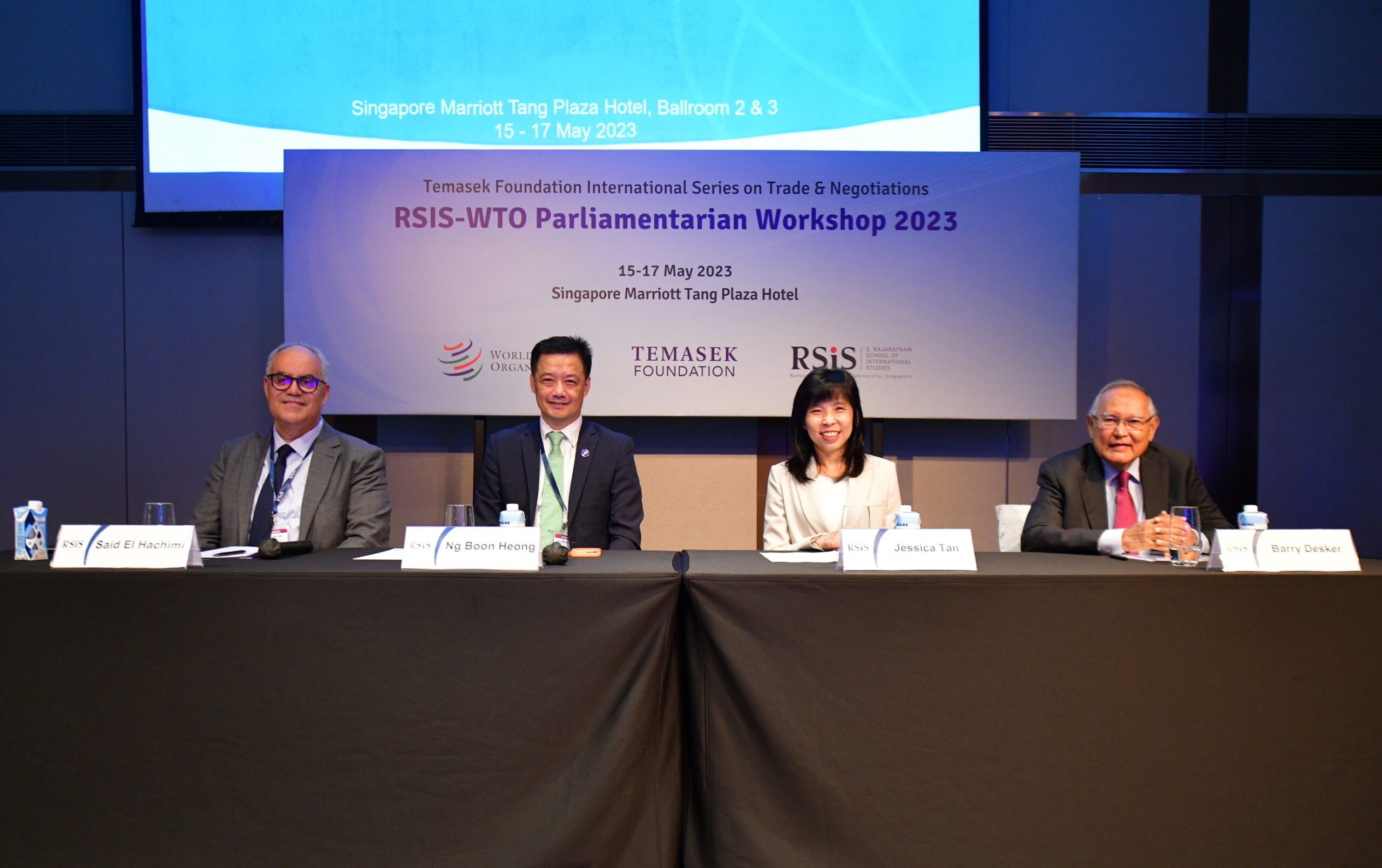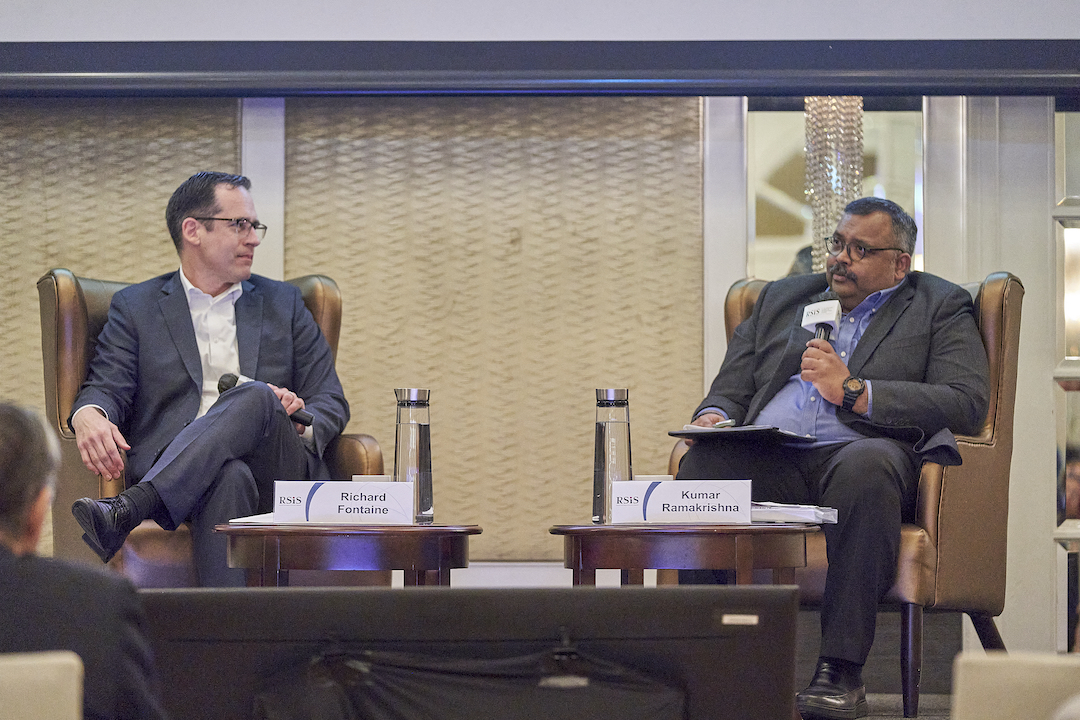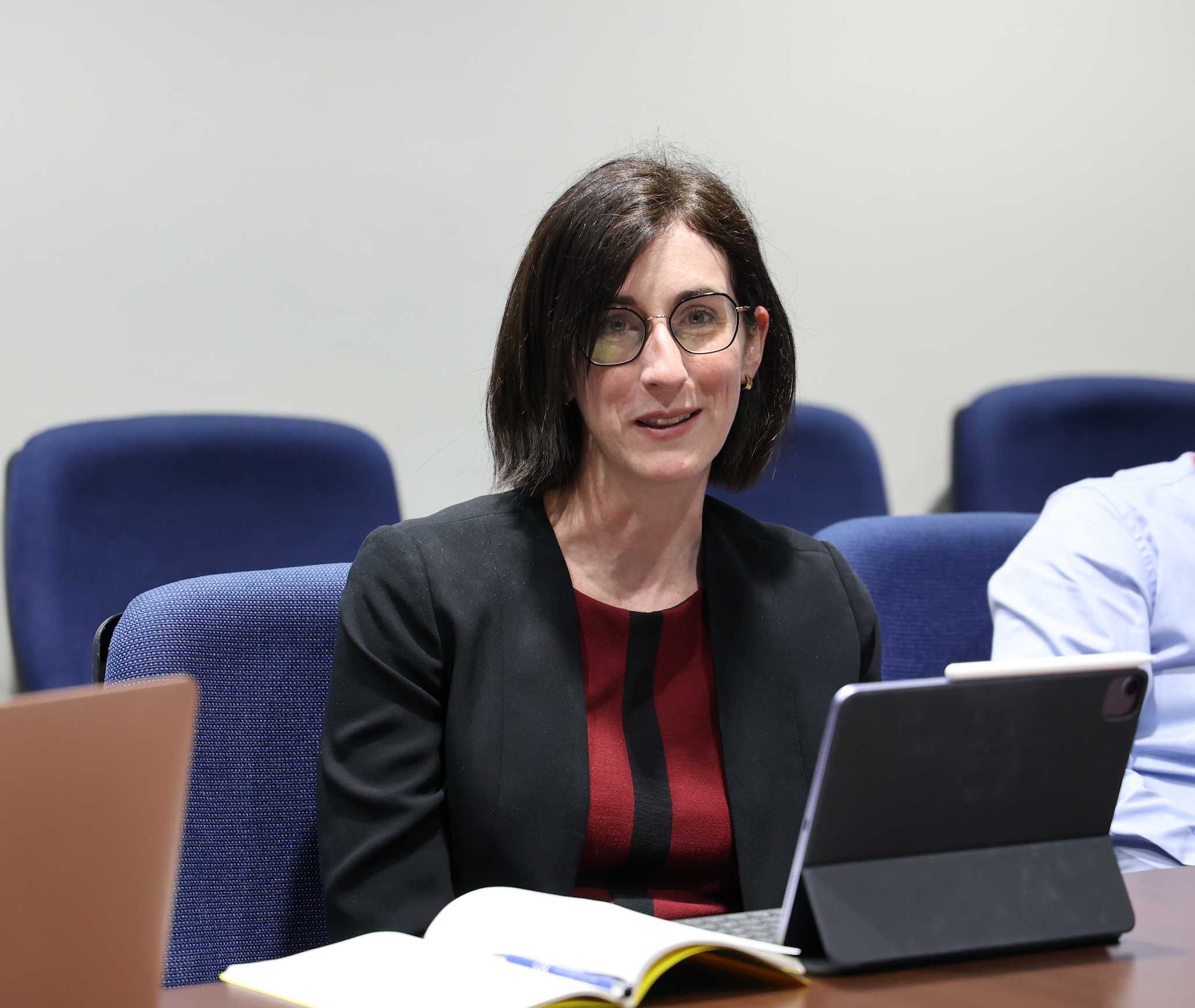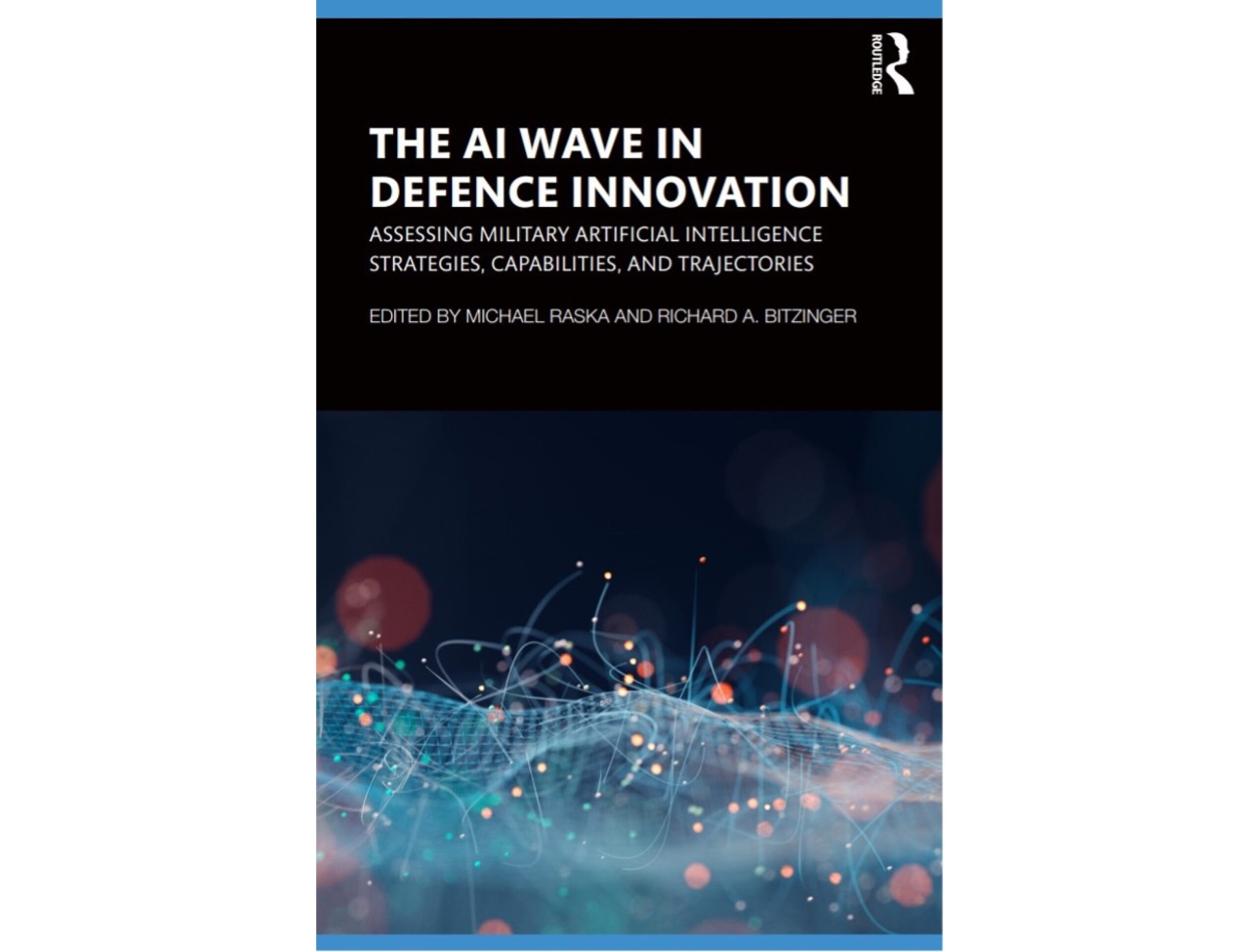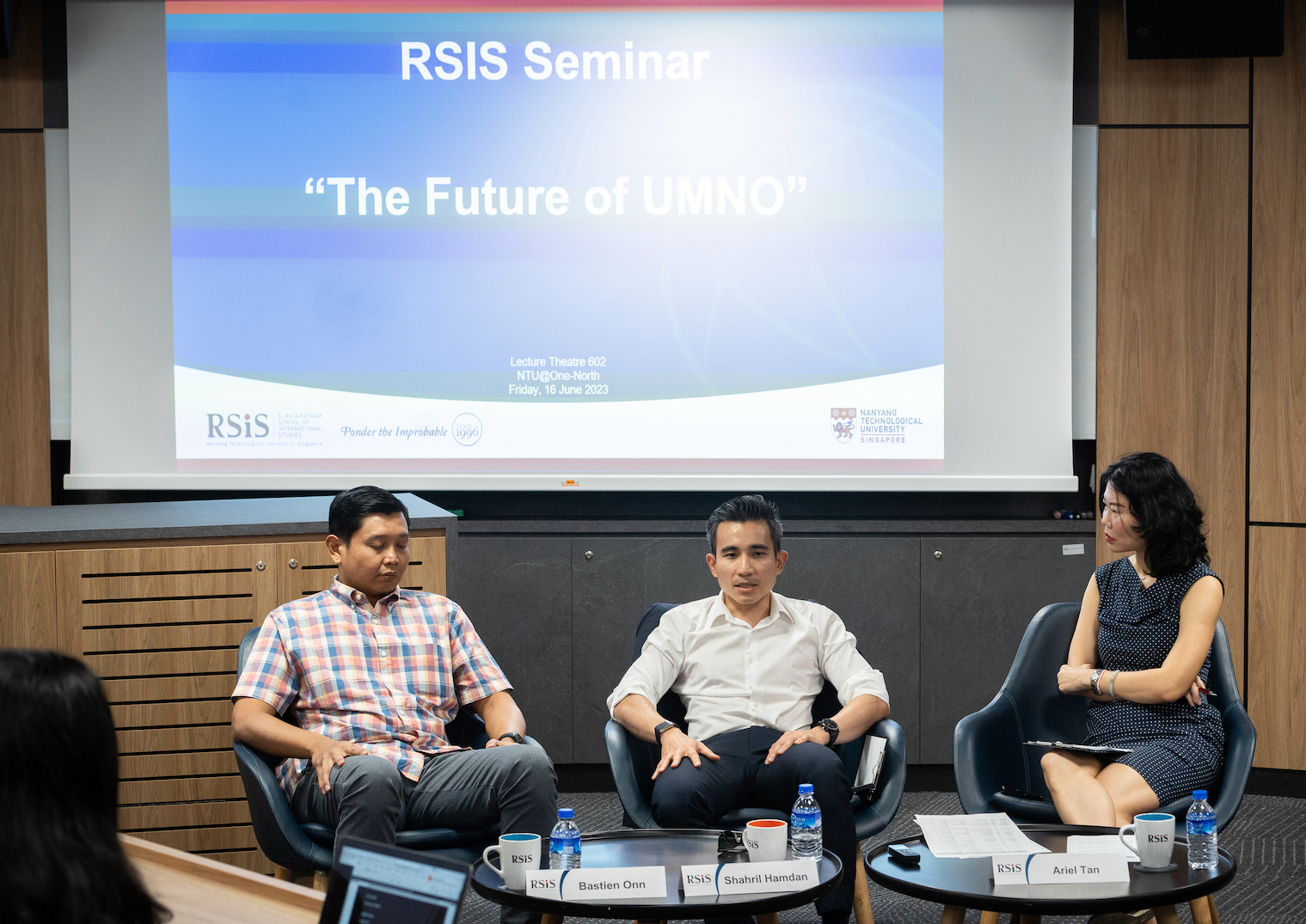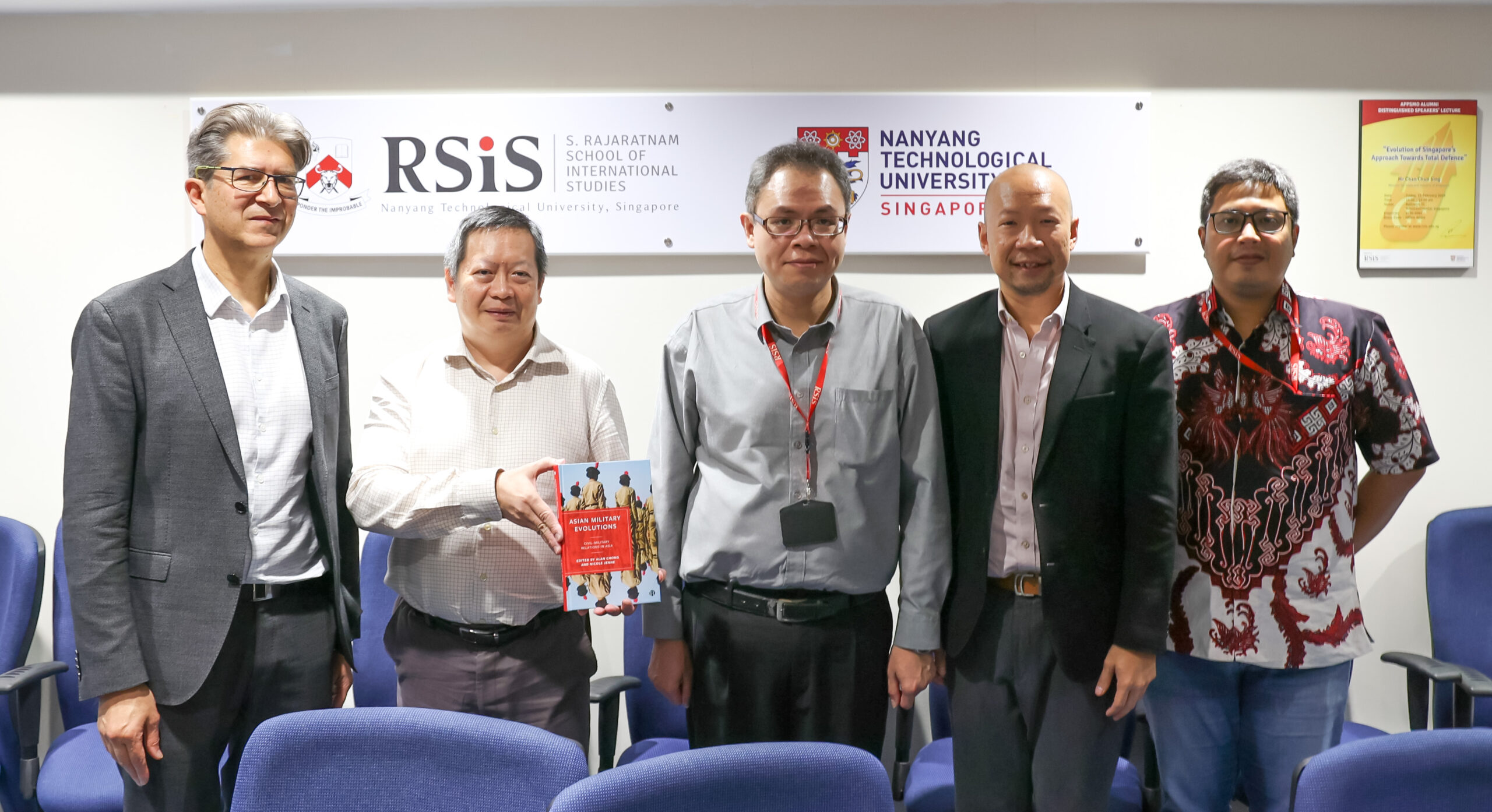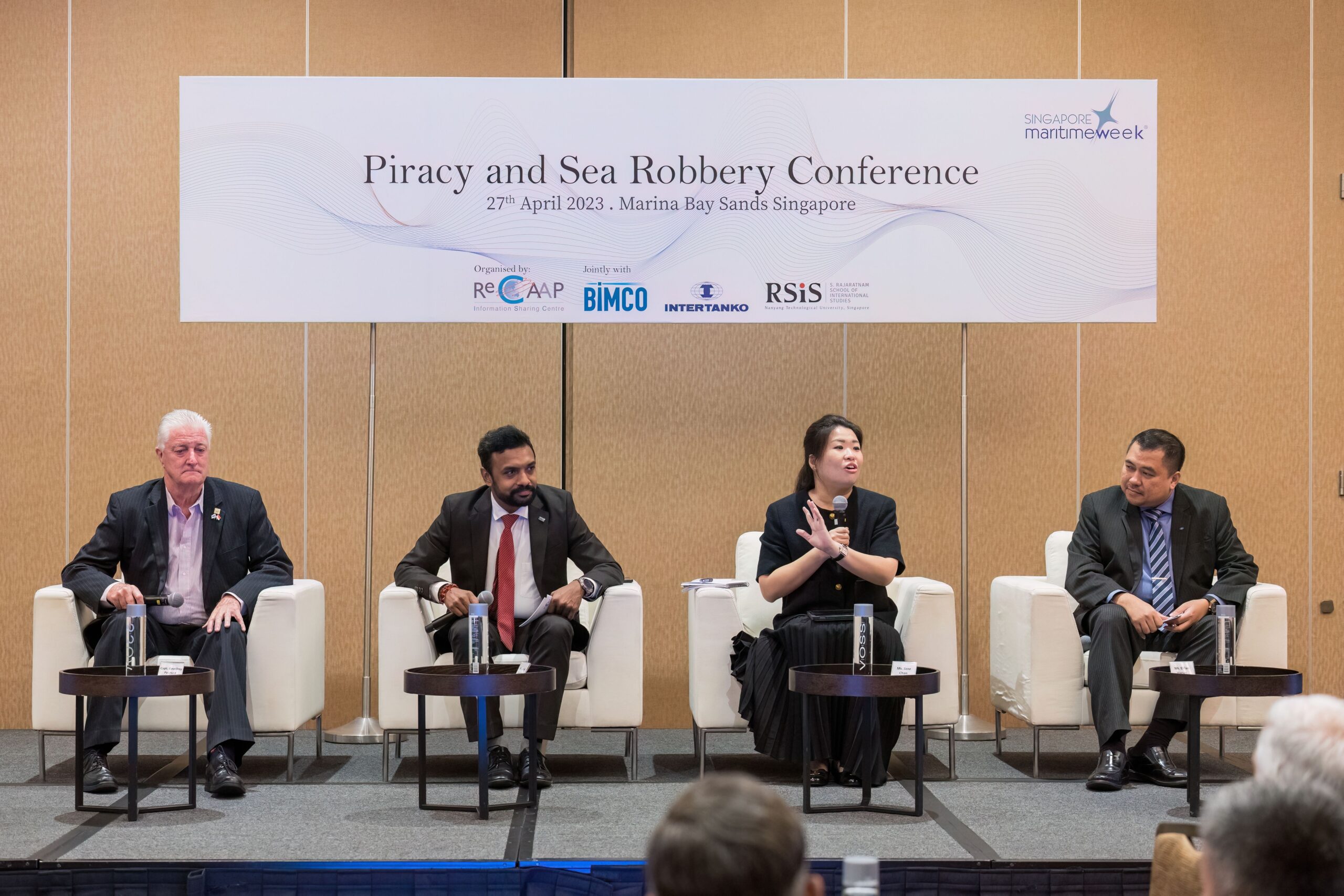

The RSIS Distinguished Public Lecture by Dr Marty Natalegawa, Distinguished Visiting Fellow, RSIS; Former Minister for Foreign Affairs, Indonesia; and Author of “Does ASEAN Matter?: a View from Within” was held on 26 June 2023. Professor Kumar Ramakrishna, Dean of RSIS, moderated the lecture titled “Foreign Policy in the Age of Geopolitical Competition: Is Being Neutral Enough?”
The age of intensified geopolitical competition – not that it has completely gone away – is well before us. Tectonic geopolitical shifts and tremor manifest in the almost incessant tensions and disputes between so-called major powers: the United States, China, Russia and their respective allies as well as partners. Geopolitical dynamics infuse areas beyond the traditional security domain. Precisely at a time when issues emerge that defy national solutions alone and demand multilateral cooperation – social and development, climate and health issues for instance – geopolitical divide and faultline stifle common action. Management of the global commons are being “weaponized”. Diplomacy as preferred statecraft faces headwinds. Efforts at peace are hushed by war drums.
And not least, large number of countries, not aligned to any of the contending geopolitical rivals, are being tasked to choose: “are you with us or against us?”
A critical juncture beckons. In response to the then raging Cold War between East and West, the great majority of states, representing a significant portion of humanity, responded by pursuing a non-aligned or independent foreign policies. The Non-Aligned Movement and the Group of 77 are perhaps the clearest, though not exclusive, illustrations. Examples at the national level abound. Indonesia, for instance, have long described itself as pursuing an “independent and active” (bebas dan aktif) foreign policy.
Today, similar concerted and cohesive response to the deepening geopolitical divide are lacking. The so-called “Global South” are being defined and identified primarily by, and from, the prism of the contending geopolitical rivals. Countries and regional groupings are inclined to limit themselves to exhortations for the geopolitical rivals to exercise restraint, and not to be forced to choose. A sense of drift, irrelevance and helplessness permeate. At the conceptual level, there is a dearth of alternative paradigms and perspectives to the well-known and traditional notion of power and security which have been recipe for instability, deepening trust-deficit among nations and heightened risk for miscalculation.
How can the great majority of states – outside the well-defined geopolitical rivals – make themselves heard and, more significantly, make positive contributions independent of the well-defined geopolitical rivals seemingly bent on achieving preponderance over the other irrespective of the costs to the global community of nations?
Watch the Distinguished Public Lecture here:




